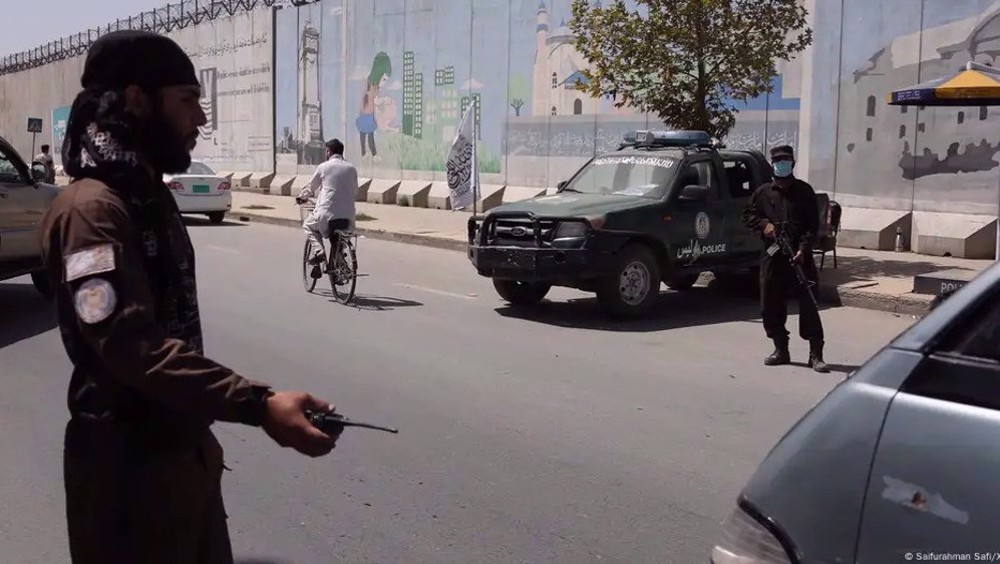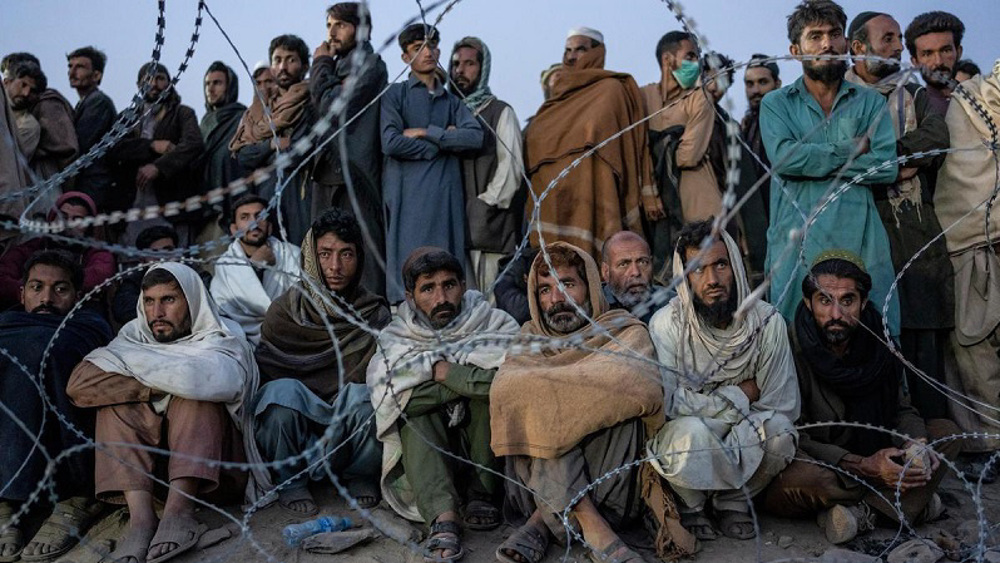Afghan government welcomes Taliban agreement to ceasefire for Eid
The deputy spokesman for the Afghan president has welcomed the Taliban’s agreement to a government ceasefire proposal for Eid al-Fitr, expressing hope that the decision can lead to lasting peace.
The Afghan government hopes that the Taliban will respond positively to the demands of the people and clergy in Afghanistan and focus on putting an end to the war in the country, Shah Hossein Mortazavi said on Saturday.
“If the Taliban claim that they are Afghan and that they have entered the scene for the sake of Afghanistan, our collective responsibility should be protecting the lives of our people and ending the war that has been claiming the lives of Afghan people for 40 years,” he said.
Earlier in the day, the Taliban announced in a statement that it had agreed to a three-day ceasefire with Afghan security forces for Eid in the middle of June, following a truce deal already proposed by Afghan President Ashraf Ghani.
The ceasefire, the first offer of its kind, will begin either on Friday or Saturday, as Eid al-Fitr, which marks the end of the Muslim fasting month of Ramadan, falls on one of these days.
The Taliban said foreign forces would be excluded from the ceasefire and operations would continue against them, adding that they would "strongly defend" themselves against any attack.
"Members of the Taliban should not participate in public gatherings during … Eid festivities because the enemy could target us," the statement said.
"Foreign occupiers are the exception" to the ceasefire order and "our operations will continue against them, we will attack them wherever we see them," it added.
Ghani had declared an unconditional week-long ceasefire with the Taliban on Thursday, but the offer excluded Daesh and other terrorist outfits.
The truce would last "from the 27th of Ramadan until the fifth day of Eid al-Fitr," Ghani tweeted from an official account, indicating it could run from June 12 to 19.
Ghani's decision came a few days after over 2,000 Afghan religious scholars issued a fatwa (religious decree) outlawing bombings and demanding that the Taliban accept the government’s peace offer in order to prevent further bloodshed.
The Taliban’s five-year rule over at least three quarters of Afghanistan came to an end when the US and its allies invaded the country on October 7, 2001 as part of Washington’s so-called war on terror.
The offensive removed the Taliban regime from power, but, ever since, the group has been involved in widespread militancy, killing thousands of civilians as well as Afghan security forces and displacing tens of thousands of people across the country.
Hours before the group announced a ceasefire, at least 17 Afghan soldiers were killed when Taliban militants stormed a military base in the Zawol district in western Afghanistan, officials said.
More recently, Daesh has also taken advantage of the chaos and established a foothold in eastern and northern Afghanistan.
The Takfiri outfit has stepped up its terror attacks in the war-torn country after losing its bases in Iraq and Syria despite the presence of thousands of US-led foreign troops on Afghan soil.
VIDEO | Press TV's news headlines
VIDEO | New wave of Israeli strikes on Lebanon as US suspends ceasefire mechanism
VIDEO | Israeli regime kills three more Palestinian journalists
Canada prime minister hits back at Trump's remarks
Lebanese journalist summoned to court for criticizing president
‘The Voice of Hind Rajab’ receives Oscar nomination
VIDEO | Foreign-backed terrorism in Iran
US-backed riots suffered 'humiliating' defeat in Iran: Yemeni leader














 This makes it easy to access the Press TV website
This makes it easy to access the Press TV website